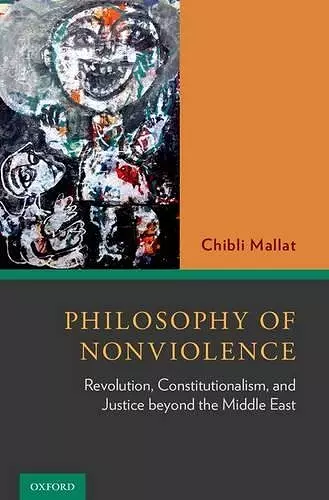Philosophy of Nonviolence
Revolution, Constitutionalism, and Justice beyond the Middle East
Format:Hardback
Publisher:Oxford University Press Inc
Published:5th Mar '15
Currently unavailable, and unfortunately no date known when it will be back

In 2011, the Middle East saw more people peacefully protesting long entrenched dictatorships than at any time in its history. The dictators of Tunisia, Egypt, and Yemen were deposed in a matter of weeks by nonviolent marches. Imprecisely described as 'the Arab Spring', the revolution has been convulsing the whole region ever since. Beyond an uneven course in different countries, Philosophy of Nonviolence examines how 2011 may have ushered in a fundamental break in world history. The break, the book argues, is animated by nonviolence as the new spirit of the philosophy of history. Philosophy of Nonviolence maps out a system articulating nonviolence in the revolution, the rule of constitutional law it yearns for, and the demand for accountability that inspired the revolution in the first place. Part One--Revolution, provides modern context to the generational revolt, probes the depth of Middle Eastern-Islamic humanism, and addresses the paradox posed by nonviolence to the 'perpetual peace' ideal. Part Two--Constitutionalism, explores the reconfiguration of legal norms and power structures, mechanisms of institutional change and constitution-making processes in pursuit of the nonviolent anima. Part Three--Justice, covers the broadening concept of dictatorship as crime against humanity, an essential part of the philosophy of nonviolence. It follows its frustrated emergence in the French revolution, its development in the Middle East since 1860 through the trials of Arab dictators, the pyramid of accountability post-dictatorship, and the scope of foreign intervention in nonviolent revolutions. Throughout the text, Professor Mallat maintains thoroughly abstract and philosophical arguments, while substantiating those arguments in historical context enriched by a close participation in the ongoing Middle East revolution.
Chibli Mallat invites us to think about what has been obscured by the reactionary turn in the ongoing revolutions in the Arab world: the non-violent origins of the revolts, and the possibilities of nonviolent action following violent turns. Structured around the three central themes of revolution, constitutionalism, and justice, he shows the necessary links between strategies, institutional arrangements, and the telos of political change. Moving back and forth between revolutionary France and the present Middle East, and between philosophical discourse and constitutional proposals, Mallat's Philosophy of Nonviolence makes a plea for a fine-grained processual analysis to frame these revolutions, whose significance goes beyond their specific locales to our collective futures. This inspiring and erudite book deserves a wide readership. * John Borneman, Professor of Anthropology, Princeton University *
ISBN: 9780199394203
Dimensions: 165mm x 236mm x 33mm
Weight: 717g
408 pages